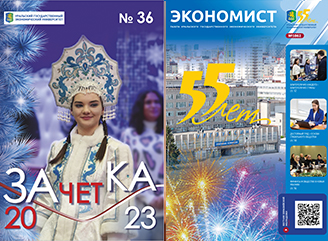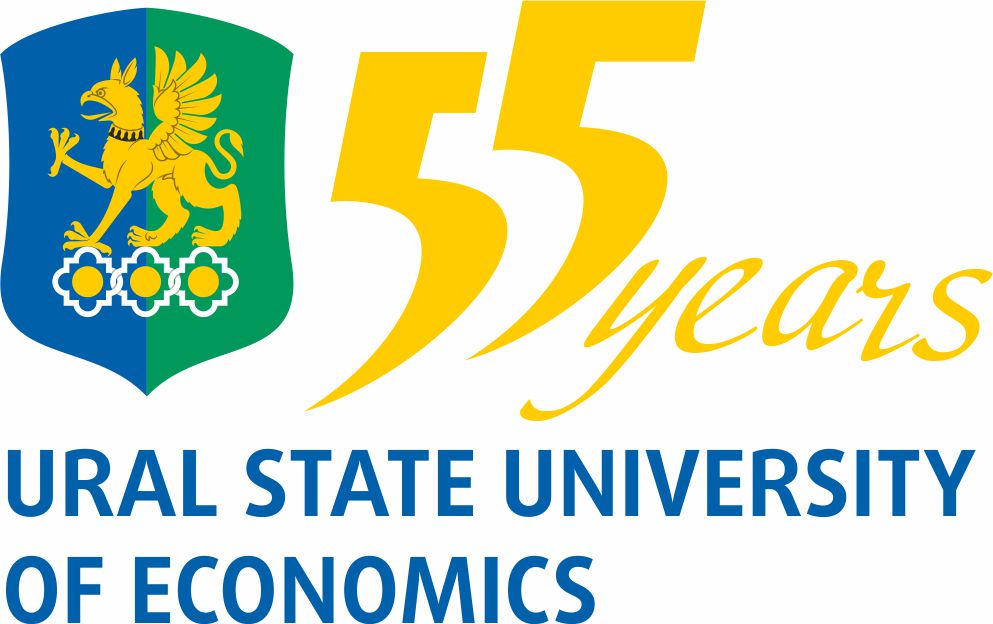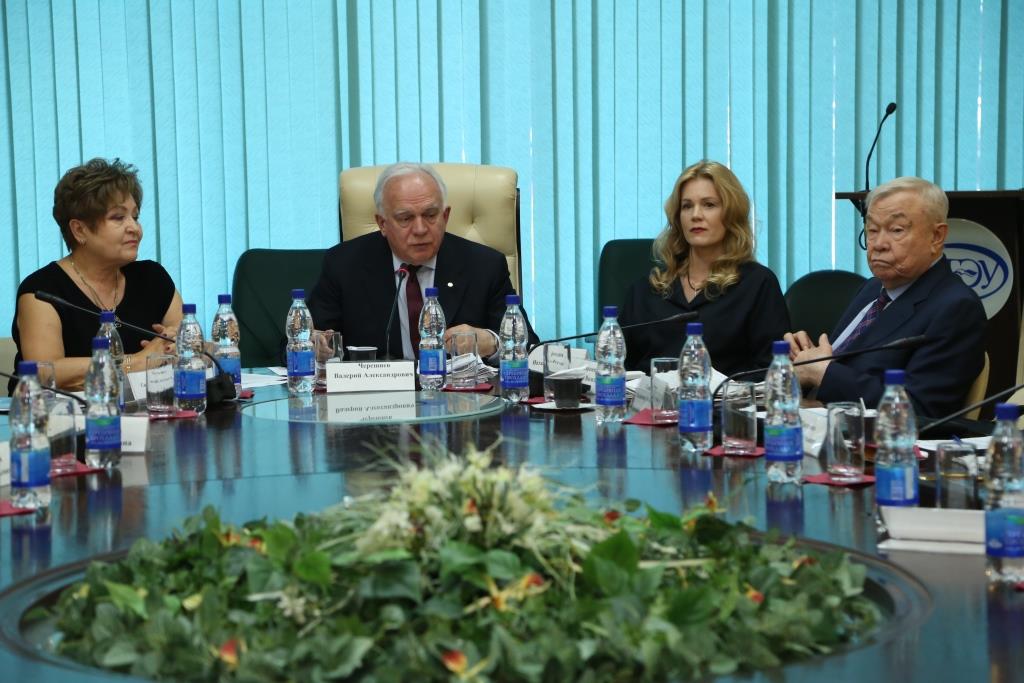 See other releases of corporate mass media
See other releases of corporate mass media
History and the subjunctive mood
September 15, the meeting of the Eurasian Research Institute of Man (ENIICH – Russian abbreviation) on the topic "History in the Subjunctive Mood: a Mind Game or a Method Of Investigation?" was held at Ural State University of Economics.
The event brought together leading scientists and public figures, teachers, and representatives of government bodies. Its traditional host was Academician Valery Chereshnev, ENIICH President, a member of the Presidium of RAS and the Ural Branch of the Russian Academy of Sciences, Director of Institute of Immunology and Physiology under the Ural Branch of Russian Academy of Sciences, "When we plan something, we look both to the present and to the future. How is the subjunctive mood applicable to history? History consists of logic and cause-and-effect relationships, rather than of a set of facts that our knowledge verification system (testing) requires. Versions of historical events arise from a lack of knowledge, while the task of history is to reduce discrepancies to a minimum. "
Discussion of history in the subjunctive mood was built around key issues: methodological and ideological functions, the sense of this method application in science, as well as the relationship between the concepts "alternative history" and "history in the subjunctive mood", and the place of these concepts in the traditional field of historical knowledge.
Sergey Rybakov, Doctor of Historical Sciences, professor at the USUE Department of Russian History in his report "On the Real And Reflected Facts: Revisiting the Nature of Historical Knowledge," said that an important condition for the existence of alternative history is the priority of primary history against the secondary one and avoidance of the concept of "post-truth".
Sergey Belyakov, Deputy Editor-in-Chief of the Ural magazine gave an example of the artistic use of the subjunctive in his report "Alternative History of Russian-Ukrainian relations in the Oleg Kudrin novel "Poltovskaya Peremoga ". According to the speaker, the use of methods for artistic purposes could better show historical events and evaluate their results.
Vladimir Karzhavin, Doctor of Engineering, chair of the UrFU Department cited several historical references in his report "On the Role of an Accident in History". From his point of view, alternative history is needed to understand the future.
Sergey Nefedov, Doctor of Historical Sciences, Candidate of Physical and Mathematical Sciences, associate professor, researcher of the sector of methodology and historiography, in his speech, "On Randomness and Regularity in History" suggested that the construction of alternative historical theories need a clear analysis of causes and consequences of previous events. "History is mathematics," Sergei Alexandrovich said.
A senior lecturer at the Faculty of Law of the Humanities University Vladimir Tanayev spoke on "History in the subjunctive as an obligatory step of analyzing the "bifurcation point" in the post-nonclassic historical research" and said that the accident lies in the economic component of history development. In his view, alternative history and interest in it are an indicator of interest in scientific history, subject to the conditions of the study. "The difference between the alternative and the subjunctive is in the fact that the alternative is selected from really possible options in a given situation," Vladimir Mikhailovich considers.
During the discussion following the meeting, the participants concluded that the use of the subjunctive mood in history is possible if there is no excessive distortion of the facts, causes, and consequences of events for politicization purposes. The building of historical alternatives helps build linear and non-linear forecasts of development of society, which is a part of social engineering. "We live in a space of options. The purpose of studying history is not making mistakes and living better,” Valeriy Chereshnev summed up the meeting.













